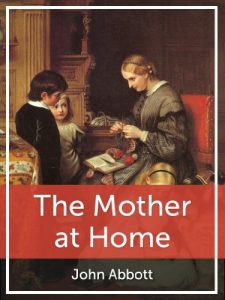In the small canton of Aargau, in Switzerland, on a rocky bluff of the Wulpelsberg, there still remains an old baronial castle, called Habsburg, or Hawk's Castle. It was reared in the eleventh century, and was occupied by a succession of warlike barons, who have left nothing to distinguish themselves from the feudal lords whose castles, at that period, frowned upon almost every eminence of Europe. In the year 1232 this castle was occupied by Albert, fourth Count of Habsburg. He had acquired some little reputation for military prowess, the only reputation any one could acquire in that dark age, and became ambitious of winning new laurels in the war with the infidels in the holy land. Religious fanaticism and military ambition were then the two great powers which ruled the human soul.
With the usual display of semi-barbaric pomp, Albert made arrangements to leave his castle to engage in the perilous holy war against the Saracens, from which few ever returned. A few years were employed in the necessary preparations. At the sound of the bugle the portcullis was raised, the drawbridge spanned the moat, and Albert, at the head of thirty steel-clad warriors, with nodding plumes, and banners unfurled, emerged from the castle, and proceeded to the neighboring convent of Mari. His wife, Hedwige, and their three sons, Rudolf, Albert and Hartman, accompanied him to the chapel where the ecclesiastics awaited his arrival. A multitude of vassals crowded around to witness the imposing ceremonies of the church, as the banners were blessed, and the knights, after having received the sacrament of the Lord's Supper, were commended to the protection of God. Albert felt the solemnity of the hour, and in solemn tones gave his farewell address to his children.
"My sons," said the steel-clad warrior, "cultivate truth and piety; give no ear to evil counselors, never engage in unnecessary war, but when you are involved in war be strong and brave. Love peace even better than your own personal interests. Remember that the counts of Habsburg did not attain their heights of reputation and glory by fraud, insolence or selfishness, but by courage and devotion to the public weal. As long as you follow their footsteps, you will not only retain, but augment, the possessions and dignities of your illustrious ancestors."
The tears and sobs of his wife and family interrupted him while he uttered these parting words. The bugles then sounded. The knights mounted their horses; the clatter of hoofs was heard, and the glittering cavalcade soon disappeared in the forest. Albert had left his ancestral castle, never to return. He had but just arrived in Palestine, when he was taken sick at Askalon, and died in the year 1240...
This is the history of the House of Habsburg and its rise to power and dominance in the lands of Austria.
With the usual display of semi-barbaric pomp, Albert made arrangements to leave his castle to engage in the perilous holy war against the Saracens, from which few ever returned. A few years were employed in the necessary preparations. At the sound of the bugle the portcullis was raised, the drawbridge spanned the moat, and Albert, at the head of thirty steel-clad warriors, with nodding plumes, and banners unfurled, emerged from the castle, and proceeded to the neighboring convent of Mari. His wife, Hedwige, and their three sons, Rudolf, Albert and Hartman, accompanied him to the chapel where the ecclesiastics awaited his arrival. A multitude of vassals crowded around to witness the imposing ceremonies of the church, as the banners were blessed, and the knights, after having received the sacrament of the Lord's Supper, were commended to the protection of God. Albert felt the solemnity of the hour, and in solemn tones gave his farewell address to his children.
"My sons," said the steel-clad warrior, "cultivate truth and piety; give no ear to evil counselors, never engage in unnecessary war, but when you are involved in war be strong and brave. Love peace even better than your own personal interests. Remember that the counts of Habsburg did not attain their heights of reputation and glory by fraud, insolence or selfishness, but by courage and devotion to the public weal. As long as you follow their footsteps, you will not only retain, but augment, the possessions and dignities of your illustrious ancestors."
The tears and sobs of his wife and family interrupted him while he uttered these parting words. The bugles then sounded. The knights mounted their horses; the clatter of hoofs was heard, and the glittering cavalcade soon disappeared in the forest. Albert had left his ancestral castle, never to return. He had but just arrived in Palestine, when he was taken sick at Askalon, and died in the year 1240...
This is the history of the House of Habsburg and its rise to power and dominance in the lands of Austria.
![Baixar The House of Habsburg – A Short History of Austria from 1232 to 1792 [Quintessential Classics] (Illustrated) (English Edition) pdf, epub, eBook](https://br.99ebooks.net/wp-content/uploads/2017/03/51Wukppxz2L-188x300.jpg)




![Baixar Louis XIV – A History of the Sun King of France [Quintessential Classics] (Illustrated) (English Edition) pdf, epub, eBook](https://br.99ebooks.net/wp-content/uploads/2017/04/51muVvVxTAL-188x300.jpg)






